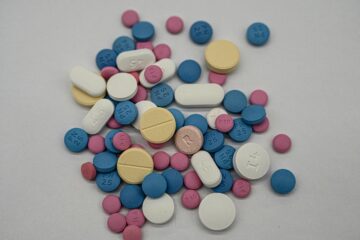
If you regularly need medication, understanding NHS prescription costs, exemptions, and prepayment services can help you save money and ensure you get the treatment you need without financial strain. This guide provides up-to-date information on NHS prescription charges, who qualifies for free prescriptions, and how to benefit from the NHS Prescription Prepayment Certificate (PPC).
NHS Prescription Costs in 2025
As of [current year], the standard NHS prescription charge in England is £9.65 per item. This means that each individual medicine listed on your prescription costs this amount, regardless of its actual market price.
It’s important to note that prescriptions are free in Scotland, Wales, and Northern Ireland, meaning residents in these countries do not have to pay for NHS medications.
Is NHS Prescription Funding Public?
Yes, NHS prescription services are part of the publicly funded healthcare system in the UK. The costs are subsidized by public funds, and exemptions are provided to ensure that vulnerable groups can access necessary medications without financial hardship. However, in England, individuals who do not qualify for an exemption are required to contribute to the cost of their prescriptions through set charges or prepayment options.
Who is Exempt from NHS Prescription Charges?
Some groups qualify for free NHS prescriptions, meaning they do not have to pay the standard charge. You may be eligible for exemption if you:
Are under 16 or aged 16-18 and in full-time education
Are aged 60 or over
Are pregnant or have had a baby in the last 12 months (with a valid Maternity Exemption Certificate)
Have a qualifying medical condition such as diabetes, epilepsy, or cancer (with a valid Medical Exemption Certificate)
Have a permanent physical disability that prevents you from going out alone and need help from someone else
Receive certain benefits such as Income Support, Universal Credit (meeting specific criteria), Jobseeker’s Allowance, or Employment and Support Allowance
Hold an NHS Tax Credit Exemption Certificate
Can People Restricted from Accessing Public Funds Get an Exemption?
Individuals who have a “No Recourse to Public Funds” (NRPF) status, such as certain visa holders and asylum seekers, are generally not eligible for benefits that fall under public funds. However, they may still qualify for free NHS prescriptions if they meet one of the following criteria:
They have a qualifying medical condition and obtain a Medical Exemption Certificate (MedEx).
They are pregnant or have had a baby in the last 12 months and qualify for a Maternity Exemption Certificate (MatEx).
They are covered under the NHS Low Income Scheme (HC2 Certificate), depending on their financial situation.
They qualify for NHS-funded healthcare through specific government or local authority support schemes.
If you are unsure about your eligibility, you should check with your local NHS provider or seek guidance from a support organization.
How to Apply for a Prescription Exemption Certificate
If you believe you qualify for free prescriptions, you must apply for the relevant exemption certificate. These certificates include:
Medical Exemption Certificate (MedEx) – For specific medical conditions
Maternity Exemption Certificate (MatEx) – For pregnancy-related exemptions
NHS Low Income Scheme (HC2 Certificate) – For individuals on low incomes who do not qualify through benefits
You can apply through your GP, midwife, or the NHS Business Services Authority website.
Saving Money with the NHS Prescription Prepayment Certificate (PPC)
For those who require multiple prescriptions, an NHS Prescription Prepayment Certificate (PPC) can significantly reduce costs. Instead of paying per item, the PPC allows unlimited prescriptions for a set fee:
£31.25 for 3 months
£111.60 for 12 months
If you require more than four prescriptions in three months or 12 in a year, a PPC can save you money.
How to Apply for an NHS Prescription Prepayment Certificate
You can apply for a PPC online via the NHS Business Services Authority website or purchase one at participating pharmacies. Payments can be made upfront or in monthly installments via direct debit.
Additional NHS Help for Low-Income Individuals
If you are on a low income but do not automatically qualify for free prescriptions, you may still be eligible for help through the NHS Low Income Scheme (LIS). This scheme provides full (HC2 certificate) or partial (HC3 certificate) help with prescription costs, dental care, and other NHS charges.
Conclusion
Understanding NHS prescription costs, exemptions, and prepayment services can help you make informed financial decisions regarding your healthcare. If you qualify for an exemption, ensure you have the necessary documentation. If you frequently require medication, consider the PPC to reduce costs.
For the latest updates and to check your eligibility, visit the official NHS website or speak to your healthcare provider.